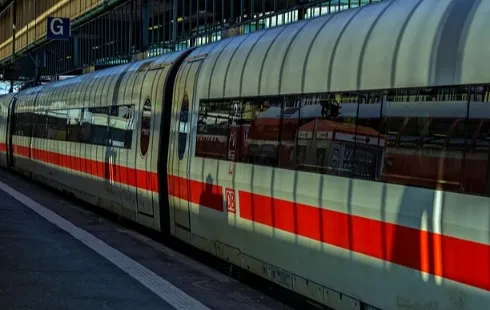
A Warm and Memorable Croissant Workshop at M Cook Studio
Section: Arts
 The Deutsche Bahn is set to enhance its services in the upcoming year, particularly focusing on international routes. With an aging infrastructure, the company is introducing new connections that will connect Germany with various European capitals, including Berlin to Paris, and more.
The Deutsche Bahn is set to enhance its services in the upcoming year, particularly focusing on international routes. With an aging infrastructure, the company is introducing new connections that will connect Germany with various European capitals, including Berlin to Paris, and more.
Expanded International Connections
Starting with the new timetable, travelers can look forward to improved accessibility to international destinations. Notably, a new ICE (InterCity Express) connection will allow passengers to travel directly from Berlin to Paris in eight hours. This route will operate from the Berlin Hauptbahnhof, making stops in Frankfurt, Karlsruhe, and Strasbourg before arriving at Paris Est. This service is scheduled to commence on a Monday, with departures from Berlin at 12:02 PM and arrivals in Paris at 7:55 PM.
Direct Routes to Major Cities
In addition to the Berlin-Paris connection, there will be daily direct ICE services from Stuttgart and Munich to Amsterdam. Furthermore, a new late connection is set to operate between Frankfurt and Brussels from mid-April to early November. Passengers traveling from Munich to Zurich will also benefit from additional trains, and there will be direct links between Berlin, Wroclaw, and Krakow, enhancing travel options significantly.
Increased Domestic Services
Domestically, Deutsche Bahn aims to increase the frequency of trains onpopular routes. Specifically, there will be six additional Sprinter trains running non-stop between Berlin and Frankfurt, reducing travel time to approximately four hours. These trains promise to be around 20 minutes faster than regular long-distance services, catering to passengers looking for quicker travel options.
New Train Services and Adjustments
The new schedule will also introduce a direct train between Berlin and Saarbrücken, along with additional services connecting Rostock, Leipzig, Frankfurt, and Stuttgart. A new ICE night service will be launched between Berlin and Switzerland, continuing the existing partnership with the Austrian Federal Railways.
Price Adjustments for Tickets
Travelers should be aware that ticket prices will see an increase. For those purchasing Flexpreis tickets, the average fare will rise by 5.9%. The Flexpreis option allows passengers to board any train on their chosen route on the same day, offering more flexibility. However, the Spar- and Superspar tickets will remain at their current prices, starting at EUR17.99 and EUR21.99, respectively.
Increased Costs for Bahncard 100
The Bahncard 100, which permits unlimited travel on all DB trains, will also see a price hike, with an average increase of 6.6%. The cost for a second-class Bahncard 100 will rise to EUR4,899 for a year, while first-class travelers will need to pay EUR7,999.
Infrastructure Challenges
Despite these enhancements, Deutsche Bahn faces ongoing challenges with its infrastructure, which has been criticized for delays and aging facilities. The company is committed to addressing these issues through extensive renovations. The first major project, modernizing the route between Frankfurt and Mannheim, has recently been completed. Looking ahead, significant work is scheduled for the Hamburg-Berlin corridor, which will be fully closed from August 2025 to April 2026, affecting thousands of daily commuters.
Conclusion
As Deutsche Bahn rolls out its new timetable, travelers can expect both improved international connections and increased domestic services. However, it is important to note the accompanying price adjustments and the ongoing infrastructural challenges that the rail service aims to resolve.

Section: Arts

Section: Arts

Section: Fashion

Section: Politics

Section: Fashion

Section: News

Section: Business

Section: Fashion

Section: Business

Section: Arts
Both private Health Insurance in Germany and public insurance, is often complicated to navigate, not to mention expensive. As an expat, you are required to navigate this landscape within weeks of arriving, so check our FAQ on PKV. For our guide on resources and access to agents who can give you a competitive quote, try our PKV Cost comparison tool.
Germany is famous for its medical expertise and extensive number of hospitals and clinics. See this comprehensive directory of hospitals and clinics across the country, complete with links to their websites, addresses, contact info, and specializations/services.
Join us at the Kunstraum in der Au for the exhibition titled ,,Ereignis: Erzählung" by Christoph Scheuerecker, focusing on the captivating world of bees. This exhibition invites visitors to explore the intricate relationship between bees and their environment through various artistic expressions,...



No comments yet. Be the first to comment!